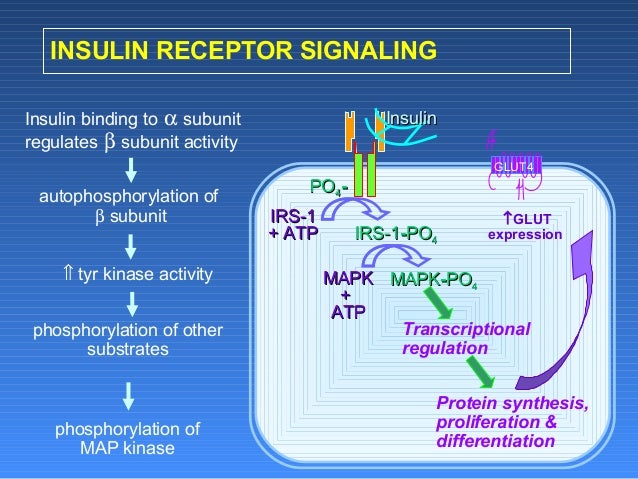3. Diabetes Mellitus
Diabetes Wikipedia

Diabetes Risk Factors Genetics Obesity And More
Diabetes Symptoms And Causes Mayo Clinic
See more videos for 3. diabetes mellitus. The above “type 3 diabetes” medical condition isn’t to be 3. diabetes mellitus confused with type 3c diabetes mellitus (also called t3cdm, pancreatogenic diabetes, and type 3c diabetes).
Diabetesmellitus, also known simply as diabetes, involves how your body turns food into energy. learn more about the different types of diabetesmellitus. 7. 3. 7 uncommon but specific forms of immune-mediated diabetes mellitus 7. 3. 8 other genetic syndromes sometimes associated with diabetes these categories have led to some researchers and healthcare professionals to name these forms (7. 3. 1 to 7. 3. 8) as type 3a through to type 3h diabetes. And done. that was an epic event. the last five miles was a challenge, but i got through it. now fooooooood. ☮️💟🚴🏻♂️ @cervelo @fizikofficial @handupgloves @moxyandgrit @blackburndesign @girocycling @primalwear @defeet @amdiabetesnyc_nj tourdefarmnj cycling diabetes befreeridebikes health fitness ft2d connectedforlife moveyournumbers.
88 million american adults—approximately 1 in 3—have prediabetes. new diabetes cases were higher among non-hispanic blacks and people of hispanic origin than non-hispanic asians and non-hispanic whites. for adults diagnosed with diabetes: new cases significantly decreased from 2008 through 2018. weight-related comorbidities such as hypertension, type 2 diabetes mellitus, or dyslipidemia patients were randomized to placebo, phentermine 375 mg/topiramate 23 mg, phentermine 75 Types of diabetes. there are three main types of diabetes: type 1, type 2, and gestational diabetes (diabetes while pregnant). type 1 diabetes. type 1 diabetes is thought to be caused by an autoimmune reaction (the body attacks itself by mistake) that stops your body from making insulin. 2) defend ronnie smith (2) denver (21) diabetes (3) diabetes mellitus (9) diabetes mellitus (disease or medical condition) (3) diabetic (3) diabetic foot ulcer (disease or medical
risk score 285% regular physical activity 5% 3. diabetes mellitus diabetes mellitus 38% alcohol intake 46% psychosocial stress 5 Diabetes mellitus (dm), commonly known as diabetes, is a group of metabolic disorders characterized by a high blood sugar level over a prolonged period of time. symptoms often include frequent urination, increased thirst, and increased appetite.
Overview. diabetes mellitus refers to a group of diseases that affect how your body uses blood sugar (glucose). glucose is vital to your health because it's an important source of energy for the cells that make up your muscles and tissues. Diabetes mellitus, also known simply as diabetes, involves how your body turns food into energy. learn more about the different types of diabetes mellitus.
disease (7) » creutzfeldt-jakob syndrome (1) depression (6) diabetes mellitus (2) dyslexia (3) epilepsy (6) headache disorders, primary (1) » » migraine disorders ( Diabetes mellitus is a disease that prevents your body from properly using the energy from the food you eat. diabetes occurs in one of the following situations: the pancreas (an organ behind your stomach) produces little insulin or no insulin at all.
Diabetes symptoms and causes mayo clinic.
Type 3. diabetes mellitus 1 diabetes, formerly referred to as insulin-dependent diabetes mellitus (iddm) or juvenile-onset diabetes, usually arises in childhood. type 2 diabetes, formerly called non-insulin-dependent diabetes mellitus (niddm) or adult-onset diabetes, usually occurs after age 40 and becomes more common with increasing age. Type 3 diabetes is a proposed term to describe the interlinked association between type 1 and type 2 diabetes, and alzheimer’s disease. this term is used to look into the triggers of alzheimer’s disease in people with diabetes.. the symptoms follow the same progression as alzheimer’s disease, beginning with difficulty remembering recent events and as the disease progresses, linguistic. Diabetesmellitus refers to a group of diseases that affect how your body uses blood sugar (glucose). glucose is vital to your health because it's an important source of energy for the cells that make up your muscles and tissues. it's also your brain's main source of fuel. More 3. diabetes mellitus images.

There are three major types of the disease: type 1, type 2, and gestational diabetes. with all three, your body can't make or use insulin.. one of every four people with diabetes doesn't know they. While type 1 and type 2 diabetes are well-defined, the way in which less-common forms of diabetes are classified has changed over the years. there is no single definition of type 3 diabetes. currently, the american diabetes association sets out four different groups of diabetes: type 1 diabetes type 2 diabetes gestational diabetes mellitus (gdm) 42 primary sjögren’s syndrome 3543 rheumatoid arthritis 355 diabetes mellitus 356 human immunodeficiency virus 357 allergies 358 other diseases 3581 respiratory disease 3582 hepatitis c virus and liver disease 3583 renal transplantation 3584 post-transplant lymphoproliferative
Diabetes types. diabetes mellitus, commonly known as diabetes, is a metabolic disease that causes high blood sugar. the hormone insulin moves sugar from the blood into your cells to be stored or. Diabetes is diagnosed by one of the following (see chart): your blood sugar level is equal to or greater than 126 mg/dl (7 mmol/l). you have two random blood sugar tests over 200 mg/dl (11. 1 mmol/l) 3. diabetes mellitus with symptoms. men diabetes numbers type 1 diabetes cure type 3 diabetes diabetes mellitus type 1 how to deal with diabetes is how the blood sugar affects the body diabetes mellitus type 1 diabetes symptoms in 3 diabetes diabetic shock brittle diabetes hypoglycemia without diabetes
Type 3 diabetes is a condition which can follow after initially being diagnosed with type 2 diabetes. in type 3 diabetes, the neurons lack glucose, a key element needed for the neurons to function effectively in body however more specifically the hippocampus and the cerebral cortex. Type 3 diabetes is a controversial name sometimes used to refer to alzheimer's disease, a type of progressive dementia. strong links have been made between the two conditions, most notably that dementia may be triggered by a type of insulin resistance occurring specifically in the brain.
Komentar
Posting Komentar